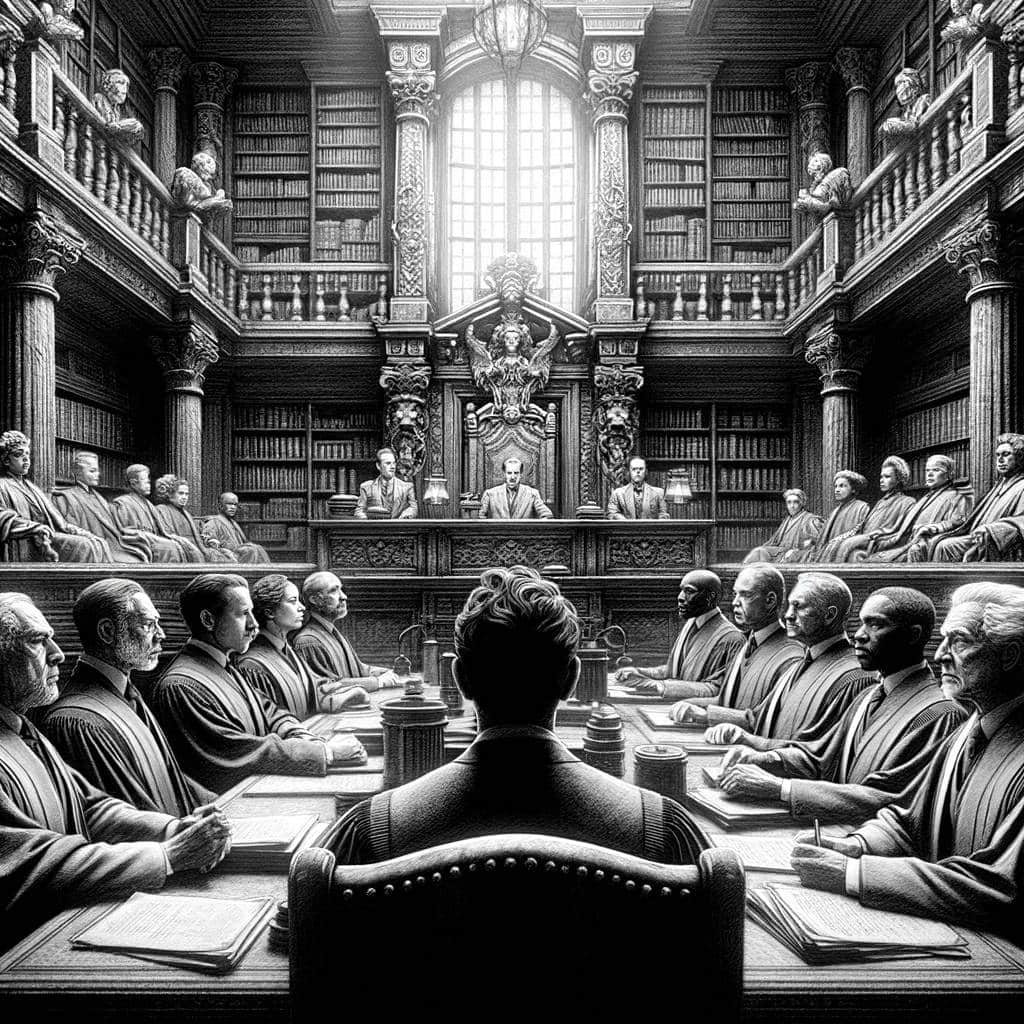Okay, deep breath, let's get this over with. In the grand act of digital self-sabotage, we've littered this site with cookies. Yep, we did that. Why? So your highness can have a 'premium' experience or whatever. These traitorous cookies hide in your browser, eagerly waiting to welcome you back like a guilty dog that's just chewed your favorite shoe. And, if that's not enough, they also tattle on which parts of our sad little corner of the web you obsess over. Feels dirty, doesn't it?
Supreme Court Sidesteps Social Media Censorship Case: A Comedy of Errors?
The US Supreme Court ruled that Missouri and Louisiana lack standing to sue the Biden Administration over social media censorship. The ruling leaves current guidelines on misinformation and election interference communication unchanged.

Hot Take:
It seems the Supreme Court just handed the Biden Administration a get-out-of-jail-free card in the social media censorship game. No standing? More like no problem!
Key Points:
- The Supreme Court ruled that Missouri and Louisiana lacked standing in their case against the Biden Administration.
- The case alleged that government officials pressured social media companies to censor content during the COVID pandemic and the 2020 election.
- Justice Barrett wrote the opinion, calling the plaintiffs’ burden to prove their case “a tall order.”
- The ruling might allow resumed communication between the FBI, CISA, and social media companies.
- The court expressed concerns over far-reaching First Amendment implications.
Standing Ovation
The Supreme Court just gave Missouri and Louisiana a lesson in the constitutional concept of “standing.” Essentially, the states argued they were getting the short end of the stick in the social media censorship debate, but the Court disagreed. Justice Barrett’s opinion broke it down: “You gotta show us the risk that a platform will restrict your speech because of the government’s actions, and that’s a tall order.” Looks like Missouri and Louisiana are going to need a step ladder for that one!
The Censorship Conundrum
In the midst of the COVID pandemic and the chaos of the 2020 election, states alleged that government officials were twisting the arms of social media giants like Meta, Twitter, and Google to censor content. They claimed this was a direct violation of the First Amendment. But the Supreme Court essentially shrugged and said, “Prove it.” The states and five social media users just couldn’t convince the Court that their free speech was on the chopping block.
Legal Limbo
Despite the District Court’s previous order to block contact between social media companies and Biden Administration officials, the case has been more like a game of legal limbo. Meta’s security researchers have been left out in the cold, no longer receiving the usual FBI briefings about foreign election interference. And the FBI, wary of more lawsuits, has hesitated to warn social media companies about interference attempts. With today’s ruling, it seems like the communication lines might just crackle back to life.
First Amendment Follies
Justice Barrett’s opinion didn’t just stop at standing issues. She also tackled the “right to listen” theory proposed by the plaintiffs. According to this theory, social media users have a constitutional right to engage with content—not just create it. Barrett found this notion pretty wild, arguing that it would give every social media user the right to sue whenever someone else’s content gets the axe. In a world already flooded with lawsuits, this theory could potentially unleash a tsunami.
Future Fights
This case isn’t the only social media free speech drama the Supreme Court is dealing with. They’re also set to rule on two other cases involving Texas and Florida state laws that could fundamentally change how social media companies handle content moderation. Buckle up, folks. The ride through social media law is far from over.
So, if you were hoping for a groundbreaking decision on government interaction with social media companies, you’ll have to wait. For now, Missouri and Louisiana will have to go back to the drawing board, and social media companies might soon find their inboxes filled with government briefings once again. In the meantime, grab some popcorn and stay tuned for more First Amendment follies from the highest court in the land.

